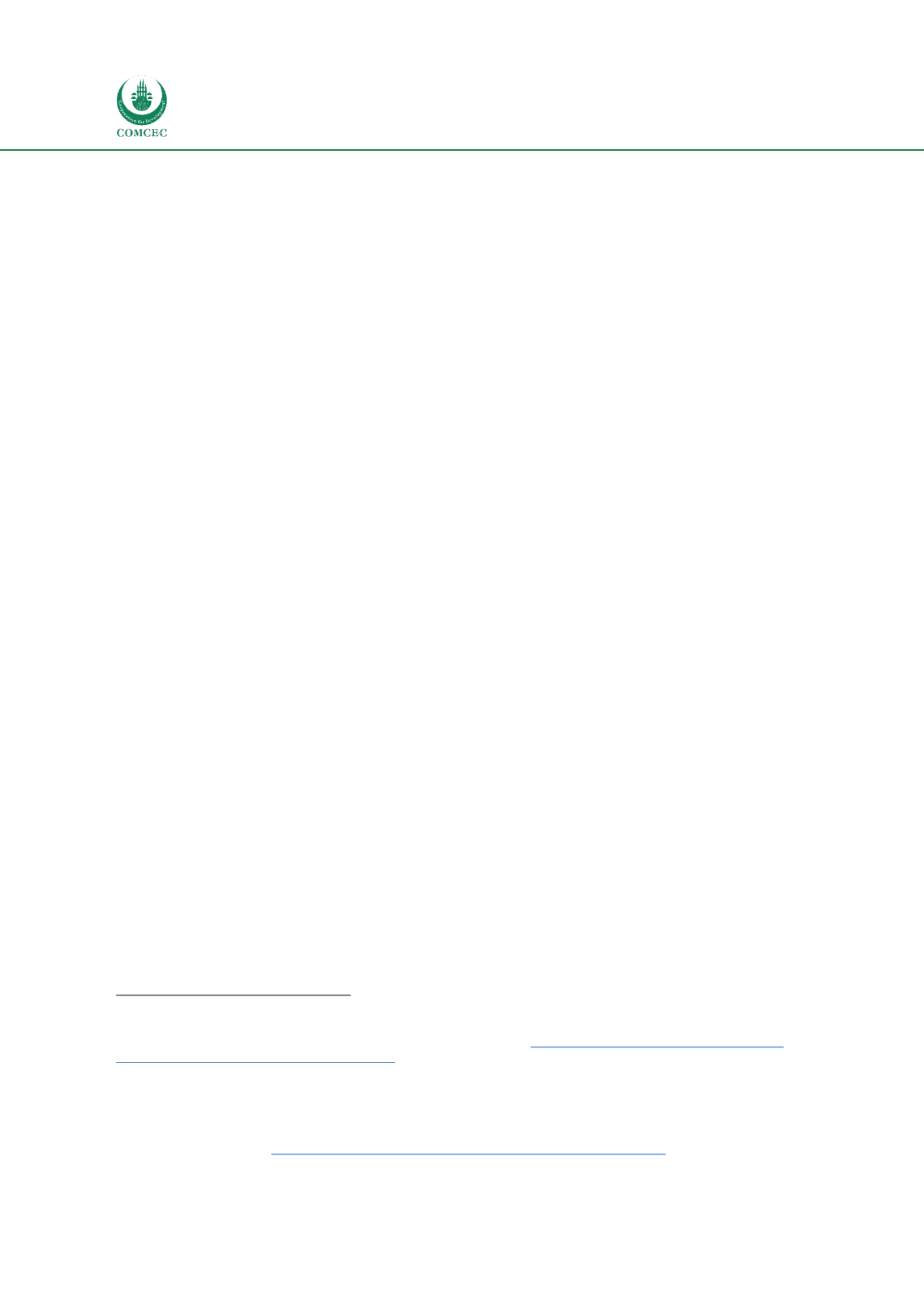

Improving Agricultural Market Performance
:
Creation and Development of Market Institutions
102
Policy & Regulatory Framework
Tunisia’s main agricultural policy framework looks to realize policy objectives related to more
general economic development as well as strategic goals such as improving the market’s
supply-demand instability, ensuring food security, and rural poverty reduction.
180
Addressing the supply-demand instability in Tunisia’s agricultural sector requires improving
market intelligence and addressing uncertainty with regards to the quantity and price
producers may sell their agricultural commodities for. Tunisia’s agricultural policy is aimed at
controlling foreign competition (e.g. border protection) as well as producer and production
factor prices (e.g. fixing a guaranteed price and subsidize inputs) and to encourage agricultural
investment through incentives (e.g. advance payments for agricultural production, subsidy
rates, and VAT exemption levied on farm capital goods and fuel). For instance, organic farmers
may qualify for financial support covering up to 30% of their investment expenditures for
equipment and 70% for certification expenditures.
181
Domestic pricing policy is most commonly implemented by public authorities to regulate agri-
food markets. Tunisia has developed three such systems:
182
Subsidized inputs: factors of production such as pesticides, fertilizers and, particularly
relevant in Tunisia’s south, water are sold at below-market prices.
Guaranteed minimum price: the Government of Tunisia fixes a guaranteed minimum
institutional price, which is typically above the world market price, at the beginning of
each crop year for each agricultural product.
Market intervention: The Government of Tunisia also has the option to intervene in
market supply and demand and determine the fixed institutional price through a
public storage body, which buys up additional supply or sells stock in case of a surplus
of market supply or demand, respectively.
On the other hand, such price support measures and regulations need to be balanced and not
too rigid to be fully effective and not counter-productive as they have the potential to distort
both agricultural as well as non-agricultural (e.g. manufacturing) markets and misallocate
resources. The future of these price support policies also depends on Tunisia’s future
negotiations with the WTO and the EU.
The Government of Tunisia furthermore controls the agricultural market dynamics by fixing
maximum prices of processed foods, controlling the margins of retail sales, negotiating with
wholesalers, provides quality incentives for cereals, and imports agricultural products to
counterbalance rising food prices
183
while the livestock sector is supported by Government
initiatives (e.g. national milk collection, national production plants, and state-funded animal
care).
184
180
African Development Bank (2012),
Economic Brief - Distortions to Agricultural Policy Incentives in Tunisia: A Preliminary
Analysis
, pp. 5-11, Tunis: African Development Bank.
181
International Trade Centre (2017), Country Profile Tunisia, available a
t http://www.intracen.org/exporters/organic- products/country-focus/Country-Profile-Tunisia/ [Accessed May 2017].
182
African Development Bank (2012),
Economic Brief - Distortions to Agricultural Policy Incentives in Tunisia: A Preliminary
Analysis
, pp. 5-11, Tunis: African Development Bank.
183
African Development Bank (2012),
Economic Brief - Distortions to Agricultural Policy Incentives in Tunisia: A Preliminary
Analysis
, pp. 5-11, Tunis: African Development Bank.
184
European Commission DG Enterprise and Industry (2013), Business Opportunities in the Mediterranean – focus on agri-
food in Tunisia, available a
t http://www.taasti.org/business-opptunities-in-the-mediterranean.pdf [Accessed May 2017].


















